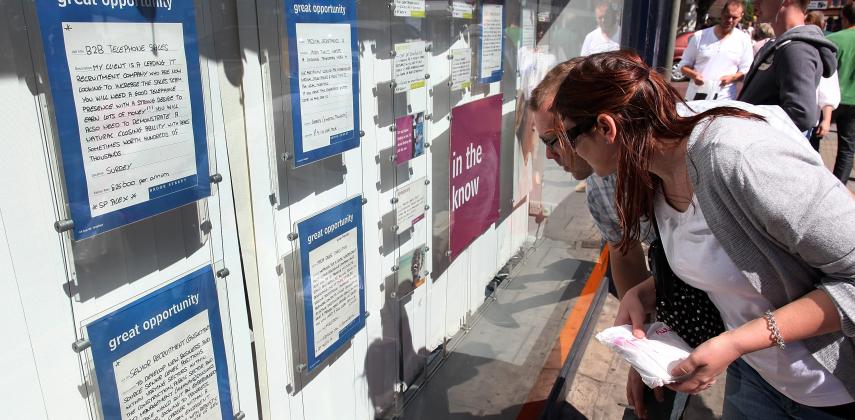LONDON - Young people are giving up on the search for work depriving society of a generation of skilled workers, a report by a UN agency has warned. It revealed global youth unemployment has risen to near its crisis peak and predicted it will keep rising over the next five years.
The report by the International Labour Organisation (ILO) also warned of the social unrest risked by large swaths of the young population out of work and highlighted a rise in the number of young people neither in employment nor in education or training, the so-called Neet group.
The ILO said the youth unemployment rate, which had been falling after hitting 12.7 per cent in 2009, has climbed this year to 12.6 per cent, and the rate - which covers those aged between 15 and 24 - is forecast to reach 12.8 per cent by 2018.
Painting a grim picture for school leavers and graduates across large parts of the world, the ILO said young people continue to be almost three times more likely than adults to be unemployed. “The weakening of the global recovery in 2012 and 2013 has further aggravated the youth jobs crisis and the queues for available jobs have become longer and longer for some unfortunate jobseekers. So long, in fact, that many youth are giving up on the job search,”said the ILO’s Global Employment Trends for Youth 2013 report.
The ILO report stressed that for those young people who do find work, the outcome is often far from ideal - damaging the prospects of both the individuals and the wider economy.
Increasing numbers are having to settle for part-time work or for temporary jobs. Informal employment among young people remains pervasive and skills mismatch on youth labour markets has become a “persistent and growing trend” with both over-education and over-skilling as well as under-education and under-skilling.
“Such a mismatch makes solutions to the youth employment crisis more difficult to find and more time consuming to implement. Moreover, to the extent that young people in employment are actually overqualified for the job they are doing, society is losing their valuable skills and forfeiting stronger productivity growth that would have been achieved had these young people been employed at their appropriate level of qualification,” the report said.
The ILO warning about a further rise in youth unemployment comes amid mounting expectations that the global economy is expected to slow down. Data for April confirmed that there has been a slowdown in the US, where public sector cuts are taking a toll, and that the Chinese authorities’ stimulus efforts have been less effective than many economists had expected.
The consultancy Capital Economics said there was also little evidence that economic activity is recovering in Japan, while output appears to be contracting in the major core and peripheral eurozone countries.
“There is still a large amount of surplus capacity in the labour market in most advanced economies,”Capital Economics said. The Neet rate in OECD countries increased by 2.1 percentage points to reach 15.8 per cent between 2008 and 2010. “In other words, around one in six young persons are without a job and not in education or training. In the European countries these trends are more pronounced both before and after the peak of the economic crisis,” the report said.
Neet unemployment is an issue in the UK. A report in March found that a lack of computer skills could be damaging the career chances of young Britons, after more than one in 10 said they did not think their computer skills were good enough to use in the job they want.
The Prince’s Trust said research among 1,378 British 15 to 25-year-olds, including 265 Neets, found that one in 10 cannot send their CV online, while a quarter dreaded filling in online job applications.
Some employers have reacted to the skills shortage by recruiting young people straight from school. Several accountancy firms have established training schemes for A-level students, allowing them to bypass university on their route to a well-paid job. However, just as many employers have moved in the opposite direction, especially in the public sector, where a large number of recruits must have a graduate degree to qualify for an interview.
The increasing use of interns by employers has also put pressure on young people and had the effect of flattering the unemployment level.
The ILO report chimes with recent data from the UK and eurozone that shows young people continuing to be the hardest hit by the unemployment crisis. There are 979,000 unemployed 16 to 24-year-olds in the UK, after a 20,000 rise in the three months to February. The jobless rate in the single currency bloc hit a record 12.1 per cent in March and youth unemployment was almost double that at 24 per cent. In Greece and Spain more than one in two young people are unemployed, though it is unclear how many work in the hidden economy in jobs that sidestep national insurance registration obligations and income tax. Guardian News Service


